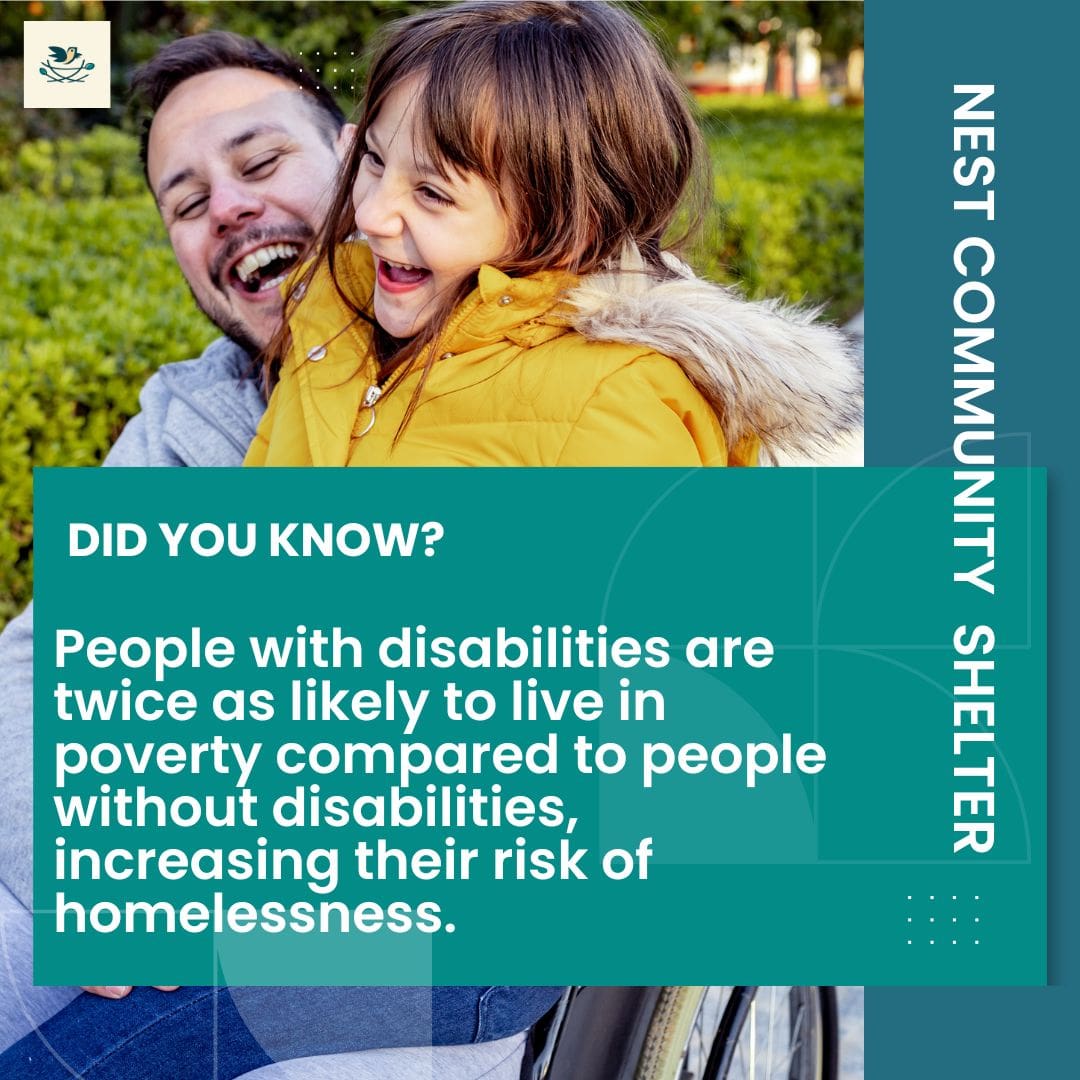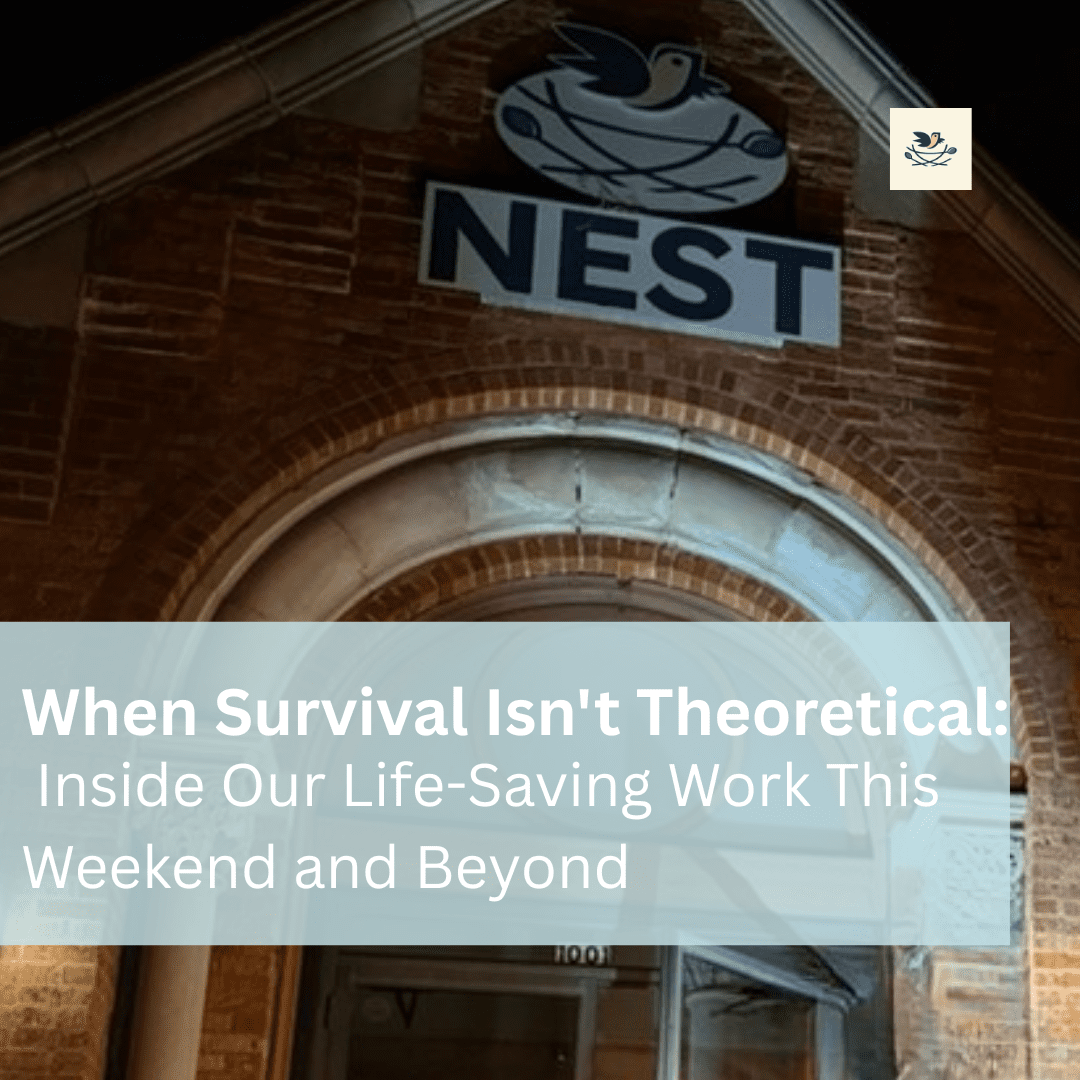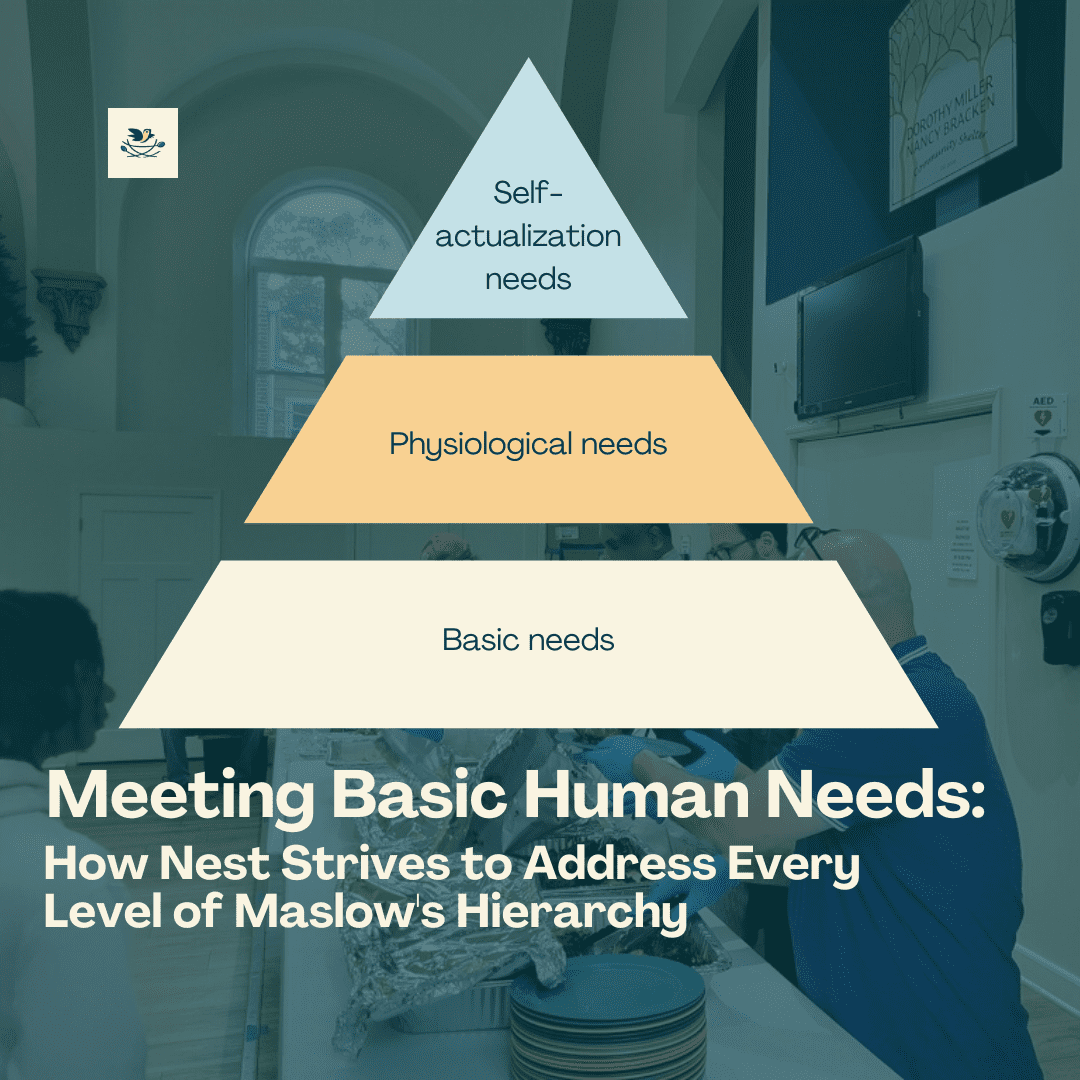
In the month of July, we will be focusing on the topic of disabilities and their connection to homelessness. Many of our guests experience a physical, emotional, or intellectual disability. When we welcome guests into the shelter who classify as having a disability, we know that the road to finding a home can be more challenging as more support and additional care are often needed. These individuals also often have longer wait times for specialized housing, funding issues with disability payments or social security payments, and additional obstacles when it comes to securing steady work.
While we are well aware of the connection between individuals with disabilities and those experiencing homelessness, we want to share some sobering statistics with you from The National Institute of Health.
Almost half of all individuals (50%) experiencing homelessness live with some type of disability (emotional, intellectual, or physical). That’s a rate 2.5 times higher than that of the general U.S. population. Half of the individuals we serve are not only battling homelessness but also navigating the world with a disability.
For those with intellectual and developmental disabilities, the situation is particularly dire. These individuals face an elevated risk for poor health and social outcomes in adulthood. They’re more likely to experience homelessness and housing instability, often slipping through the cracks of our social support systems.
At Nest Community Shelter, we see the human faces behind these statistics every day:
– The man with PTSD who couldn’t hold down a job and ended up on the streets.
– The young adult with autism who aged out of the foster care system with nowhere to go.
– The middle-aged woman whose chronic illness drained her savings and left her homeless.
– The middle-aged man who is experiencing unmedicated mental illness and is coping with substance abuse to mask the symptoms of his mental illness.
These are not just numbers; they’re our neighbors, our community members, and individuals with hopes, dreams, and inherent dignity.
So, what can we do as a community?
- Raise Awareness: Many people aren’t aware of the strong link between disability and homelessness. By sharing these facts, we can help our community understand the massive complexities of the issue.
- Advocate for Inclusive Policies: We need policies that address the unique needs of individuals with disabilities who are experiencing or at risk of homelessness.
- Support Specialized Services: Shelters and housing programs need abundant resources to provide accommodations and support for individuals with disabilities.
- Promote Employment Opportunities: Many individuals with disabilities want to work but face significant barriers. As a community, we should advocate for inclusive employment practices.
- Strengthen Social Safety Nets: Adequate disability benefits and affordable housing are crucial in preventing homelessness among this vulnerable population.
At Nest Community Shelter, we’re committed to serving all members of our community, including those with disabilities. But we can’t do it alone. We need your support to provide the specialized care and resources these individuals need.
Remember, homelessness doesn’t discriminate, and by working together, we can make a difference in the lives of our community’s most vulnerable.




